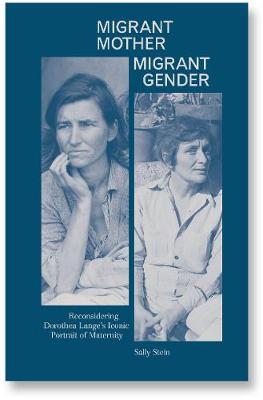DISCOURSE
1 total work
Sally Stein reconsiders Dorothea Lange's iconic portrait of maternity and modern emblem of family values in light of Lange's long-overlooked 'Padonna' pictures and proposes that 'Migrant Mother' should in fact be seen as a disruptive image of women's conflictual relation to home, and the world. Stein is an American academic and cultural theorist living in Los Angeles. The interrelated topics she most often engages concern the multiple effects of documentary imagery, the politics of gender, and the status and meaning of black and white and color imagery on our perceptions, beliefs, even actions as consumers and citizens.
Dr. Stein, Professor Emerita, UC Irvine, is an independent scholar based in Los Angeles who continues to research and write about 20thcentury photography in the U.S. and its relation to broader questions of culture and society. She has written about New Deal FSA photographers-particularly Dorothea Lange, Marion Post Wolcott, Jack Delano-as well as the contested image of FDR. Her numerous essays about popular mass media - Ladies Home Journal, Life and Look - extend her ongoing study of the various aspects of the rise of color photography. The interrelated topics she most often engages concern the multiple effects of documentary imagery, the politics of gender, and the status and meaning of black and white and color imagery on our perceptions, beliefs, even actions as consumers and citizens.
Dr. Stein, Professor Emerita, UC Irvine, is an independent scholar based in Los Angeles who continues to research and write about 20thcentury photography in the U.S. and its relation to broader questions of culture and society. She has written about New Deal FSA photographers-particularly Dorothea Lange, Marion Post Wolcott, Jack Delano-as well as the contested image of FDR. Her numerous essays about popular mass media - Ladies Home Journal, Life and Look - extend her ongoing study of the various aspects of the rise of color photography. The interrelated topics she most often engages concern the multiple effects of documentary imagery, the politics of gender, and the status and meaning of black and white and color imagery on our perceptions, beliefs, even actions as consumers and citizens.
